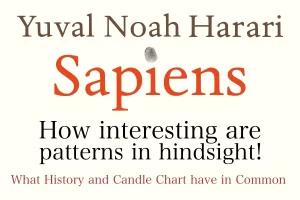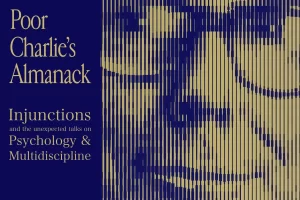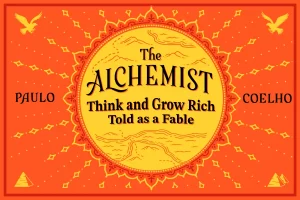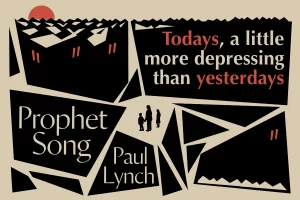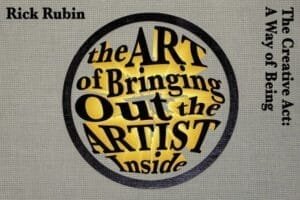How interesting are patterns in hindsight!
What History and Candle Chart have in Common
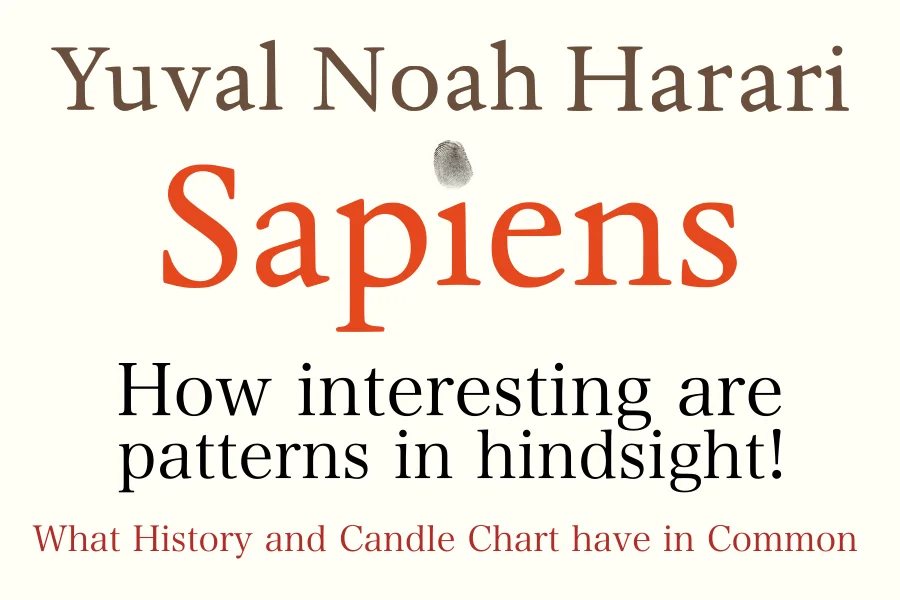
It starts out with an homage to Steven Hawking’s “A Brief History of Time”. On the cover says “A Brief History of Humankind”, alongside Bill Gates’ comment: I would recommend Sapiens to anyone who’s interested in the history and future of our species’. The book explains how and why history unfolded the way it has, in its unique way. Harari says the cognitive revolution – the ability to imagine the abstract, is what set us on a track different from any other earthly organism. He says that by agriculture, it was humanity that got domesticated and not the other way around (I’ll get into these). The book delivered propositions that I don’t think I could have thought up on my own. It goes beyond already well-known notions like how fire-cooked food allowed humans excess energy to be used elsewhere. I have no idea what I’m going to do with this information. It’s cool nonetheless.
Recommendation for Readers
Written from scratch by Meston Ecoa
No assistance was received from any form of Artificial Intelligence.
A brief summary of a brief history of humankind
Part 1 is the most fun. Allowing full frankness, the most interesting part is the one page that precedes Part 1. Since it’s the most compact, yet, essential part, I’m writing everything down.
13.8 billion
Matter and energy appear. Beginning of physics. Formation of atoms and particles. Beginning of chemistry.
4.5 billion
Formation of planet Earth.
3.8 billion
Emergence of organisms. Beginning of biology.
6 million
Last common grandmother of humans and chimpanzees.
2.5 million
Humans evolve in Africa. Use of stone tools.
2 million
Humans spread from Africa to Eurasia. Evolution of different species.
400,000
Neanderthals evolve in Europe and the Middle East. Regular use of fire.
300,000
Homo Sapiens evolves in Africa.
70,000
The Cognitive Revolution. Emergence of Storytelling. Beginning of history. Sapiens spread out of Africa.
50,000
Sapiens settle across Australia. Extinction of Australian megafauna.
30,000
Extinction of Neanderthals. Homo Sapiens the only surviving human species.
15,000
Sapiens spreads across Americas. Extinction of American megafauna.
12,000
The Agricultural Revolution. Domestication of plants and animals. Permanent settlements.
5,000
First kingdoms, script and money. Polytheistic religions.
4,250
First empire – the Akkadian Empire of Sargon.
2,500
Invention of coins – a universal money.
The Persian Empire – a universal political order.
Buddhism in India – a universal teaching.
2,000
Han Empire in China, Roman Empire in the Mediterranean, Christianity.
1,400
Islam
500
The Scientific Revolution. Humankind admits its ignorance and begins to acquire unprecedented power. Europeans begin to conquer America and the oceans. The entire planet becomes a single historical arena. The rise of capitalism.
200
The Industrial Revolution. Family and community are replaced by state and market. Massive extinction of plants and animals.
The Present
Humans transcend the boundaries of planet Earth.
Nuclear weapons threaten the survival of humankind.
Organisms are increasingly shaped by intelligent design than natural selection.
The Future
Intelligent design becomes the basic principle of life?
First non-organic life-forms?
Humans become gods?
Just 6 million years ago, a single female had two daughters. One became the ancestors of all chimpanzees, the other is our own grandmother - p5
Harari has a gift for putting things in perspective. Like this one. I used to think that Homo Erectus and the Neanderthals would be older versions of us. But in fact, they were our sibling species, just a little less smarter and social. It was hard to fathom how species that share so much physical properties as us, could not bear children together (they rarely succeeded). I reckon it would have been really weird. Imagine an animal with all the attributes as a cow, but has the appearance of a man. Could we condone that? Harari says that we would have led them to extinction, i.e. killed them.
 Perhaps this is why our ancestors wiped out the Neanderthals. They were too familiar to ignore, but too different to tolerate. – p20
Perhaps this is why our ancestors wiped out the Neanderthals. They were too familiar to ignore, but too different to tolerate. – p20
This blows my mind. Perhaps the first case of extreme racism exhibited on Earth. Not only did our ancestors kill off their closest sibling species, they led a whole bunch of megafauna to extinction. It evokes a similar feeling when I hear war stories of our grandfather’s generation. They would say proudly how many enemy men they killed. That grotesqueness is often hard to bear, but brings some little bit of crude, primal, superiority as well. After all, it was a him-or-me, me as in my grandfather, situation (No, not exactly my grandfather, but people who fought in the war in general). Well, when humanity reached that first milestone, however primitive, it was good enough to overpower all other animals, however big.

The Agricultural revolution: History’s biggest fraud
Harari explains how early forms of agriculture could not have been beneficial for the individual. Less diversity in diet is less nutritious. People become susceptible to weather and climate which they have no control over. In a forager society, diet is diversified. Worst case, the whole tribe can move to a different location. For agriculture, the mean benefit it offers may be appealing, but the variance is greater too.
It’s like seeing self-driving EVs these days. For the cautious driver, with a good track record, I believe it has nothing to offer. For the average case, there might be less accidents. But the occasional malfunctioning, explosions of batteries, not-yet-optimized self-driving software could deliver hazards that are outside of one’s control. A good driver could die from an unfortunate battery issue that would never have happened in the previous world. Just like a forager wouldn’t have died from starvation because the crop yields were bad this year.
It also reminds me of the inner control freak, dreamer mindset, that wants to automate everything. Many times, it’s not worth automating. Initial input is big. You could always encounter an input of a different quality, the whole process may be deemed unnecessary in the near future. Most of all, when your hands are off the wheel, everything goes well, until it’s not. You also miss the natural learnings that you get as you get your hands dirty.
Then whom did agriculture benefit? It served the greater humanity in general. Most people toil hard just to get by. And the surplus is gathered somewhere to fuel studies, wars, politics etc. Lay people didn’t sign up for it. They could have been happier before. I think about how difficult it was to introduce a new system during my army days. If I imagine how long it would have taken some optimistic primitive people to pitch agriculture and settle down, I can see why it would have taken a couple thousand years. History does repeat itself.
Other Quotes & Comments
 There are no gods in the universe, no nations, no money, no human rights, no laws and no justice outside the common imagination of human beings. – p31
There are no gods in the universe, no nations, no money, no human rights, no laws and no justice outside the common imagination of human beings. – p31
With the example of Peugeot, Harari demonstrates how difficult it is to destroy an idea. This transcendence allowed for cooperation of big bodies of people (greater than 150 people).
 • Between the years 3500bc and 3000 bc, some unknown Sumerian geniuses invented a system for storing and processing information outside their brains. … called ‘writing’ – p137
• Between the years 3500bc and 3000 bc, some unknown Sumerian geniuses invented a system for storing and processing information outside their brains. … called ‘writing’ – p137
• Biology enables, culture forbids – p164
Rules, taboos, norms are all created by culture, and it differs greatly from one era to another.
 • Homo Sapiens evolved to think of people as divided into ‘us’ and ‘them’. … In fact no social animal is ever guided by the interests of the entire species to which it belongs. … The first millennium BC, everyone was ‘us’, at least potentially. … Everyone was subject to the same economic, political, religious order – p190
• Homo Sapiens evolved to think of people as divided into ‘us’ and ‘them’. … In fact no social animal is ever guided by the interests of the entire species to which it belongs. … The first millennium BC, everyone was ‘us’, at least potentially. … Everyone was subject to the same economic, political, religious order – p190
• The average Christian believes in the monotheist God, but also in the dualist Devil, in the polytheist saints, and in animist ghosts. … It’s called syncretism. Syncretism, might in fact, be the single great world religion – p248
• If a religion is a system of norms and values that is founded on belief in a superhuman order, then Soviet Communism was no less a religion than Islam. … Like Buddhists, Communists believed in a superhuman order of natural and immutable laws should guide human actions. – p254

• So why study history? Unlike physics or economics, history is not a means for making accurate predictions. We study history not to know the future but to widen the horizon. – p269
It seems history shares something in common with technical analysis. The patterns of candles can be determined only after they happened. It doesn’t tell you much on a predictive standpoint.

• The Chinese and Persians did not lack the techonological inventions such as steam engines (which could be freely copied or bought). They lacked the values, myths, judicial apparatus, and sociopolitical structures that took centuries to form and mature in the West and which could not be copied and internalised rapidly. – p314
• The great empires of Asia – the Ottoman, the Safavid, the Mughal and the Chinese- very quickly heard that the Europeans had discovered something big. Yet they displayed little interest in these discoveries. They continued to believe that the world revolved around Asia, and they made no attempt to compete with the Europeans for control of America or the of the new ocean lanes in the Atlantic and the Pacific. Even puny kingdoms such as Scotland and Denmark sent a few explore-and-conquer expeditions to America, but not one expedition of either exploration or conquest was ever sent to America from the Islamic world, India or China. -p330
How would have one known that there would exist exponential potential out there? Especially when exponentiality is so far from what humanity has witnessed all along. Perhaps this belief of continued innovation is a religion of its own. Nasdaq and S&P index being always at its peak seems to reflect this track record as well as faith in the outlook. All we can do is but believe the world will keep on moving forward. We have no proof that it will. If it doesn’t, it doesn’t. But what’s for sure is if the world doesn’t go in that pessimistic way, there would be no place for ones who prepared only for the worst. That’s what tech companies are saying about their capital investments in AI in 24Q2. They can’t be sure if AI would translate to revenue, but they have to keep investing. Because, if it does turn out to be lucrative, there would be no place for the laggers.
Some Information
• 466 pages
• Vocabulary level: Medium
• Library of Congress Subjects: Civilization–History, Human beings–History, World history.
Chronology, Historical, Technology and civilization–History.
• Goodreads Genres: Nonfiction, History, Science, Philosophy, Anthropology
• Year of publication: 2011
• Meston’s Rating: 3.5



